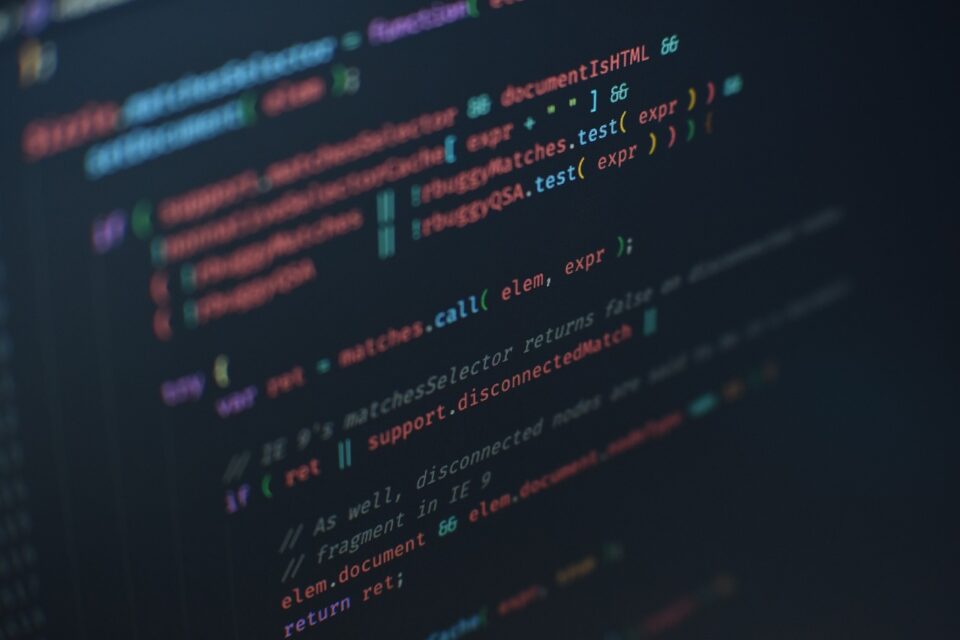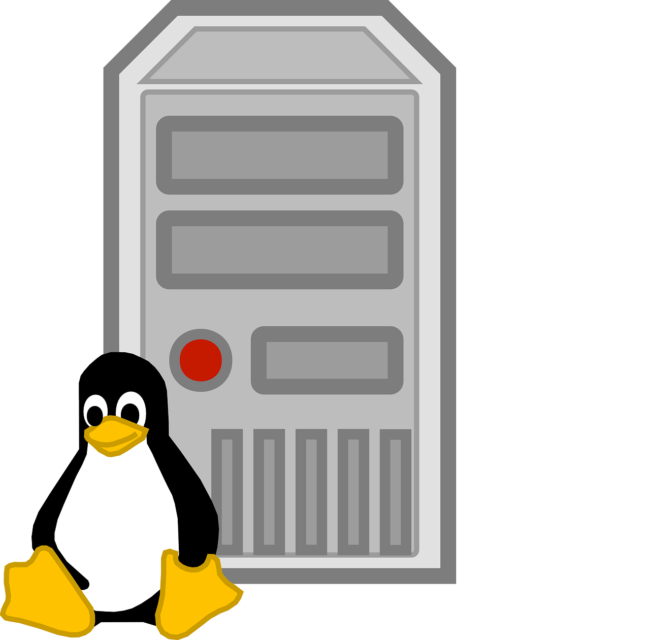Linux is a Unix-like computer operating system that is composed primarily of free and open-source software. Linux has been used on the majority of all supercomputers since November 2017, and it is the most popular operating system on servers and other big iron systems such as mainframe computers and large-scale academic clusters.
The development of Linux is one of the most prominent examples of free and open source software collaboration; typically, all the underlying source code can be used, freely modified, and shared by anyone
Linux distribution (often abbreviated as distro) is an operating system made from a software collection that includes the Linux kernel and often a package management system. Distributions are used to bundle together all of the necessary software to run an operating system, including the kernel, libraries, utilities and applications.
There are many different distributions (“distros”) available, each with its own benefits and drawbacks. Some are better suited for certain tasks than others. In this article, we will take a look at 10 of the best Linux distros for developers.
History of Linux
Linux was originally created as a hobby project in 1991 by Linus Torvalds when he was an undergraduate student at the University of Helsinki, Finland. He wanted to give ordinary computer users access to the same system that professionals used. His development work was based on existing technologies from Minix.
12 Best Linux OS For Coding

1.Ubuntu (best for beginners)
Ubuntu is a great pick for beginner programmers and Linux newbies. It is a distro based on Debian and is easy to install and has a lot of online resources to help you get started. Plus, it is free! For programmers, the Ubuntu Long Term Support (LTS) release provides a stable development environment that they don’t need to upgrade every six months.
If you are a beginner Linux user or new to the Linux ecosystem, then this is the best option for you. With Ubuntu, you will be up to speed in getting started with Linux commands and package managers. Many programming languages are supported and as a result, it is easy to adopt and a good choice for programming.
2.Kali Linux (best for security researchers)
Kali Linux, created by Offensive Security, is primarily preferred by ethical hackers to perform penetration tests on vulnerable networks and computers. But it can also act as a great companion for programmers looking for a Linux distro for programming, development and ethical hacking.
Kali Linux GNOME Dark theme comes loaded with tons of pre-installed tools for penetration testing. However, do note that it’s made for seasoned Linux users rather than folks who want to switch from Windows to Linux. However, you’ll be good using it as long as you’re a decent programmer and love experiencing new things. Kali Linux also helps you gain knowledge that will help you excel in your career.
It’s the most popular choice for security programmers due to its vast collection of security-related tools. These tools can be used to test the security of systems and find vulnerabilities. Security researchers frequently use Kali Linux to perform exploits on other systems. If you are looking for a Linux distro that will help you in penetration and security programming, then look no further. Developers, as well as security researchers, can gain a lot of benefits by using Kali Linux as their choice of Linux operating system.
3. Manjaro Linux (best for intermediate programmers)
Manjaro is the choice of people who find installing Arch difficult. It has an easy GUI installer, just like Ubuntu or Linux Mint, making the installation process much more manageable. One of the reasons to give Manjaro a go is due to its cutting-edge updates, which, although slower than Arch Linux, get the job done.
It is the fourth most popular distro, according to Distrowatch, which, in itself, says a lot about the distro. Combining all the power of Arch Linux, it’s best suited for beginners looking for an Arch alternative. Moreover, Manjaro comes in three editions: GNOME, KDE, and XFCE, so you don’t miss out on your favorite desktop environment. Manjaro’s development team has been doing a pretty great job with each release, making the overall experience more polished.
4. Arch Linux (best for advanced programmers)
Arch Linux is a great choice for advanced programmers. It is a very lightweight distribution that can be easily customized to your needs. The Arch User Repository (AUR) is a great resource for finding and installing software. The Arch community is very friendly and helpful, and there is a lot of documentation available. If you identify yourself as an advanced programmer or you want some challenge then go for arch Linux.
5. Fedora (best for server programmers)
Fedora Workstation is a popular choice for server programmers due to its stability and wide range of software packages. It is also easy to customize and extend, making it a versatile platform for developing and deploying server applications.
6. Android-x86 (best for Android programmers)
Android-x86 is an open-source project that aims to bring the Android operating system to x86-based PCs and laptops. It is a great choice for Android programmers who want to develop and test their apps on a desktop or laptop. The project provides a live and bootable ISO image that can be used to run Android on your PC.
7. OpenSUSE (best for system admins)
OpenSUSE is a great choice for system administrators and developers who want a stable and reliable operating system. It is one of the oldest Linux systems, having been created in 1992. It is well-supported and comes with a wide range of tools and features that make it easy to administer a server.
One of the important advantages of openSUSE is its YaST package management, which makes it easy to automate different tasks. Another outstanding characteristic of this dependable Linux distro for developers is its software delivery method. The favorite thing about openSUSE is that you can head over to its software portal website and install anything in just one click. Its vast package database and supportive community are another plus.
8. Raspberry Pi OS (best for education purposes)
Raspberry Pi OS (previously called Raspbian) is a Linux distro that is optimized for the Raspberry Pi hardware. Like Ubuntu or Linux Mint, it is also based on Debian. It is the official operating system for the Raspberry Pi and comes with a wide range of software that is suitable for education, programming, and general use. It provides a programming environment for Raspberry Pi software development.
Raspbian/Raspberry Pi OS comes loaded with many programming tools, connector pins, and other beneficial ports. This makes it a perfect Linux OS for learning embedded systems programming.
It has BlueJ, Geany, Greenfoot, Mathematica, Python, Node-RED, Scratch, and other tools for making your learning process more effective.
9. Drauger OS (best for game programmers)
Drauger OS is a great option for game programmers. It is based on Ubuntu, so it has all of the features and benefits that come with that operating system.
It provides a good development platform for game programmers who are interested in Linux gaming. In addition, Drauger OS comes with a number of features specifically designed for game development, such as a custom kernel and support for Vulkan.
10. Linux Mint (best for general purpose use)
Linux Mint is a great choice for general-purpose use. It is based on Ubuntu, so it has all of the same features and benefits. It has some extra features that make it even more user-friendly. For example, it comes with pre-installed software that makes it easy to get started with using Linux.
11. ZORIN OS (best for windows based programmers)
Zorin OS is a great option for programmers coming from Windows or macOS. It’s based on Ubuntu, so it’s easy to use and familiar for anyone who’s used Windows before. Plus, it comes with all the tools you need to get started programming right away.
12. Gentoo Linux (best for customizations)
Gentoo Linux is another popular distro known for its ease of customization. It offers a broad range of options and tools to customize your system.
Gentoo is known for its flexibility and customizability and is the best Linux distro for developers and system designers who want to customize the feel of their Linux operating system.
In conclusion, Linux is a great choice for programmers and developers for a number of reasons. First, it is an open-source operating system, which means that anyone can contribute to its development.
Second, there are many different programming languages available for Linux, so you can choose the one that best suits your needs. Third, Linux distributions are available for a variety of different desktop environments, so you can find one that fits your workflow.
There are many different Linux distributions available, and choosing the best one for programming can be a difficult task. However, I believe that the best Linux distro for programming is Ubuntu. Ubuntu is a popular distribution that is easy to use and comes with a wide range of features. It also has a large community of users and developers who can help you if you run into any problems. It is also widely used in servers and as a result, learning it can be a case of killing two birds with one stone.
